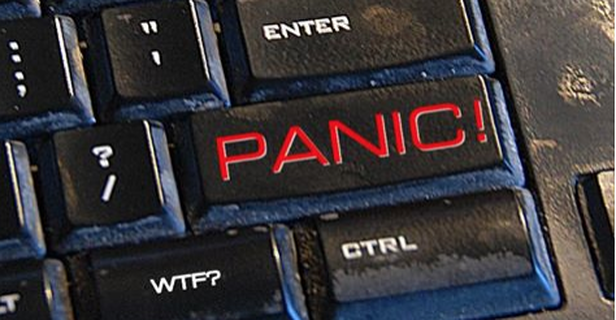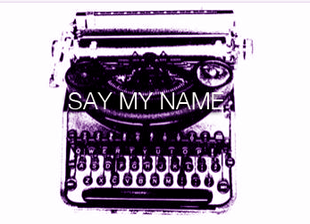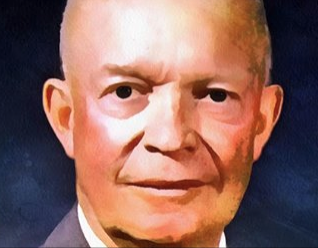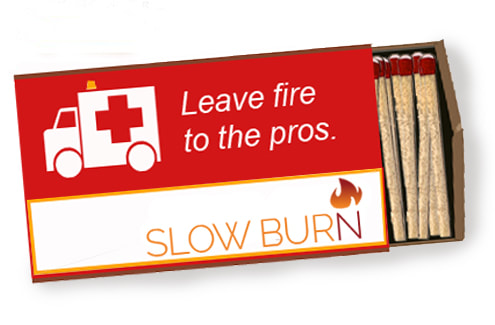 WHAT BRAND IS YOUR HYSTERIA? Over the weekend, I was greeted by a headline that led to a head-scratching moment. "UN COULD TAKE CONTROL OF INTERNET..." What does that even mean? Is Ban Ki-moon coming to my house to unplug my Ethernet cable and telling me, "No more cat videos for you!" The headline comes courtesy of that bastion of conservative political news aggregation, The Drudge Report. OF COURSE, DEAR READER, YOU ARE NOW QUESTIONING MY SENSIBILITIES Why on earth is your relentless scribe reading the king of muckraking conservative hysteria? Well, let's just say that it started right after 9/11. As a news aggregator with a no-nonsense, white-space layout, Drudge was an expedient way to find relevant news stories from around the web. Since then, Drudge has remained on my reading list mainly because it links to some of the most ridiculous news stories anywhere. Like dogs accidentally shooting their masters, mail carriers hoarding tons of mail in their homes, and any number of tales from around the globe about humongous benign tumors. And the Drudge headlines, especially concerning Anthony Weiner, are laughably atrocious. (We leave them and the website's "Balls To The Wall Coverage" to your imagination.) BUT HOW IS THE UNITED NATIONS GOING TO TAKE CONTROL OF MY DRUDGE BROWSING? Funny you should ask. I wondered the same thing. And let's remember that The Drudge Report is a politically conservative website. Tagline: "Those in power have everything to lose by individuals who march to their own rules." (Just rolls off the tongue, doesn't it?) Anyway. I clicked the headline. The link takes the reader to a story in The Wall Street Journal. Let's remember that the WSJ is characterized by "conservatism, center-right, economic liberalism." (Thanks for the description, Wikipedia. Hope the UN doesn't squash you along with my cat videos.) Let's also remember that the Journal is also the country's largest daily newspaper by circulation at 2.4 million copies. AND THE PAPER'S TAGLINE IS, "THE DAILY DIARY OF THE AMERICAN DREAM" Seems awfully Horatio Alger for an otherwise staunchly literate business journal, doesn't it? Anyway, from the Journal, August 28, 2016... HEADLINE: "An Internet Giveaway to the U.N." SUBHEAD: "If the U.S. abdicates internet stewardship, the United Nations might take control." Basically, this is about the United States government ceding monopolistic control of ICANN (Internet Corporation for Assigned Names and Numbers). ICANN is the nonprofit that ensures the stable and secure operation of the internet by coordinating names and IP addresses. DOGS AND CATS LIVING TOGETHER! The impending doom of the internet is encapsulated in an op-ed piece by formerWSJ publisher L. Gordon Crovitz: "The only thing worse than a monopoly overseen by the U.S. government is a monopoly overseen by no one--or by a Web-censoring U.N." Seems that, like nature, ICANN will abhor a vacuum and seek control by someone, anyone--but most likely the U.N. Crovitz concludes: "Congress still has time to extend its ban on the Obama administration giving up protection of the internet. ICANN has given it every reason to do so." And the Wall Street Journal is usually a pretty clear-eyed, rational publication as business goes. Seems scary. Where will my cat videos go? And all those stories about whoppingly huge benign tumors? How will I continue to source The Absolute Truth according to Wikipedia? BUT...HOW WERE OTHER NEWS BRANDS WERE TREATING THIS STORY? So, a quick google of "ICANN" yielded a top story from TechRepublic. Yes, the online journal of "IT decision makers." Apparently, when they're not spinning the propellers on each other's hats and playing beer pong, the geeks at TechRepublic are serving their IT compatriots by living up to their tagline, " Empowering the People of Business and Technology." From August 18, 2016, TechRepublic's News Editor, Conner Forrest details how the U.S. is "lessening its control of the [web address] naming system." He quotes Joseph Lorenzo Hall, chief technologist for the Center for Democracy & Technology, who says: I do think everyone will get benefits from the ICANN/IANA transition to a global stakeholder community, including the business community, as it is a solid sign that the US is serious about globalization of the internet and not trying to maintain what we might call digital colonialism. Hunh. Looks like the conservative-business brand and the it-empowerment brand each see things a little differently. Digital colonialism, indeed. YOU SAY "POTATO" AND I SAY "PANIC IN DETROIT!" So, in this fairly shallow and pointless examination of the pending global crisis, your relentless scribe turned to a less widely known source. The magazine Reason was founded in 1968. It began life as a "more-or-less monthly mimeographed publication." (The devil is definitely in the details available at Wikipedia. One hopes the U.N. doesn't turn the whole internet into a game control panel for Pokemon Go.) The Reason tagline is, "Free minds and free markets." A classical-liberal publication of politics, culture and ideas, it has been named one of the "50 best Magazines" a couple of times by The Chicago Tribune. (Tagline: "That THAT, Rham Emanuelle!") October 15, 2014--yes, almost two years ago-- Reason staff writer Zenon Evans offers a story headlined, "Overseer ICANN Breaks Up With U.S. Government." SO IT'S NOT AS IF THIS SITUATION WAS SNEAKING UP ON US LIKE AN SINISTER, REGULATORY NINJA IN THE NIGHT The Reason article details the machinations of the break up between the U.S. government and ICANN. Then, Evans concludes: When the U.S. suggested in March that the relationship would come to an end, conservative media and politicians freaked out and accused the Obama administration of handing over power to censorship-happy countries like Russia and China. This was inaccurate. The U.S. didn't have much power to hand over anyway, but the move does effectively silences criticism from Russia and China that the U.S. did have too much power. Hunh. Well then. CUE MUSIC: "FREAK OUT" BY LE CHIC All that pressure got you down? Has your head spinning all around? Come on along and have a real good time, indeed. Branding and editorial politics. Distilled thinking and over-simplified arguments. Who's right? Hell if I know. BUT IT WAS A LOT OF FUN TO LOOK AT HOW EACH OF THE BRANDS HERE REPRESENT THE PROBLEM The Drudge Report, " Those in power have everything to lose by individuals who march to their own rules," offers a subtly inflammatory, fear-mongering headline in, "UN COULD TAKE CONTROL OF INTERNET..." The Wall Street Journal, "The daily diary of the American dream," offers a more reasonable sounding, business-framed debate in "If the U.S. abdicates internet stewardship, the United Nations might take control." But still: dogs and cats living together! TechRepublic, " Empowering the people of business and technology," comes off as purely tech-idealistic about things and seemingly has no obvious political agenda. (Crafty, propeller-head technocrats. Hey, it's in the name: TechREPUBLIC.) And finally, Reason, "Free minds and free markets," points to the hysteria of two years ago and says, "Uh, yeah. No." AH, THE POLITICS OF HYSTERIA The "Politics Of Dancing" was so much easier. And while it is truly an inane song, there is one verse with an ironically prophetic view on the state of the art: "The broadcast was spreading / Station to station / Like an infection / Across the nation." Wow. Removed from the dance beat of the Re-Flex arrangement, the words seem...appropriate? And subsequently, the song poses an important question: "Is this message understood?" It seems an easy reply: yes. That doesn't necessarily mean the message is correct. But rest assured that, whatever your bias, turning to one's preferred brand for confirmation of that bias is going to yield the correct opinion every time. Branding: not just for small business owners any more!
0 Comments
 SO, GARY VAYNERCHUK IS A NUT That's pretty evident. He's also enviable as a businessman. At 40 years old, he's a small-business entrepreneur with a net worth of $10 million. You might know Gary Vee as the guy behind Wine Library. His irreverent and badly-produced videos about wine made him one of the first YouTube stars--and he completely didn't fit the idea of a wine snob. He was accessible. He spoke in plain, unvarnished language about wine, and always maintained that one of his goals is to someday own the New York Jets. (Wine tasting with a New York Jets spit bucket was obviously more than just an affectation. More like an effort at good ju-ju.) GARY VAYNERCHUK IS A SELF-PROMOTING WUNDERKIND And it's not just social media smoke and mirrors. In the early 1990s, he built a website called Wine Library. He was doing internet retail sales of wine before most people knew what the internet even was. In 1998, after graduating from college, he took over his father's store, Shopper's Discount Liquors. In seven years, Mr. Vaynerchuk grew the annual sales from $3 million to $50 million. This man knows how to self-promote and how to sell stuff. Gary Vee has long been a magnetic and engaging huckster, and he has the revenue to prove it. SO, I'M READING HIS MOST RECENT BOOK (Did we mention Mr. Vaynerchuk inked a 10-book, $1-million deal with HarperStudio?) The latest book (his fourth), called #AskGaryVee, is named for The #AskGaryVee Show, a YouTube series that he launched in 2014. Fans ask him questions in social media, and he replies to them on YouTube. It's basically a variation on the let's-turn-our-blog-into-a-book model. Which is a fine model, especially for someone who knows what they're doing. But, barely 15 pages in, it's clear he and I are in trouble. He's telling me to stop worrying about naming my company. The name doesn't matter. If I want to stand out and disrupt my category, I should just stand out and disrupt the category. UM...REALLY? As proof that the name doesn't matter, he says: "Are you going to tell me that 'Apple' or 'Vine' is an earth-shatteringly clever name? Or 'Snapchat' or 'Reddit'? Do you have any idea how many people wish they had a different last name so they could use it for their company? They're talking to a guy named Vaynerchuk! 'Oh, that's unique and cool and...' No, it's really not. My name is good because I made something out of it." Well, first of all, the latter point is very true. He has made something out of "Vaynerchuk." That said, Vaynerchuk is a cool name. It's unusual. It makes you look twice. And it lends itself to brand truncation. Like Federal Express became FedEx, Gary Vaynerchuk became Gary Vee. What about Apple Computer? That is, after all, the original name. And it was named in a time when personal computing was in its infancy and regular people found the idea of computers intimidating. AND STEVE JOBS, WHO WAS KIND OF A NUT, WAS ON ONE OF HIS FRUITARIAN DIETS He had also just returned from an apple farm. Jobs thought the name Apple Computer was "fun, spirited and not intimidating." So, really, there was some brand thinking involved. How did he want people to feel about his business? That it was fun, spirited and not intimidating. Perfect for a guy who wanted to sell huge numbers of computers to the masses. And I will tell you that, as someone who up to that point had found computers to be nothing like fun, the product actually lived up to the brand promise. The Apple Computer was very cool and accessible. SO THE APPLE NAME MAKES THE PROSPECT FEEL SOMETHING What about Snapchat? Well, it seems pretty obvious. It's about sending short snaps that disappear. But did you know that wasn't the first name? According to the website Rewind & Capture, Snapchat was originally called Picaboo. It wasn't catching on until they started marketing it as a sexting tool. Apparently, a draft of a press release says, "Picaboo lets you and your boyfriend send photos for peeks and not keeps!" When the cease-and-desist letter arrived from the photo-book company Picaboo, they changed the name to Snapchat. Seems that name has some resonance with the target demographic of 18-25 year olds who are "famously known for selfies and sexting." Seems that the name Snapchat means something specific and makes them feel the right thing. See also: 10 billion videos sent daily. THE TWO NAMES MR. VAYNERCHUK DISMISSES AS NOT EARTH-SHATTERINGLY CLEVER? They are derived from some insightful brand thinking. And here's something else they do. They can aid people who aren't the same kind of relentless self-promoters as Gary Vaynerchuk. If someone who's a marginal self-promoter saddles himself with a stupid name, how is that going to help him? Granted, Mr. Vee does say that if your product sucks, it doesn't matter how good the name is. On that point, we agree entirely. But to dismiss the value of properly naming one's company indicates an utter lack of understanding about branding and why branding works. LOOK AT YAHOO! Yeah, I know. They're everyone's favorite multi-billion-dollar whipping boy right now. And there may be hope for them. But the company name is an indicator of an entire series of brand mistakes. Yahoo! began life as "Jerry And David's Guide To The World Wide Web." They were just two guys at Stanford who were cataloguing websites. When it was evident the guide was a viable product, they realized they'd need another name. A shorter one. "I dub thee, Yahoo!" THE ACCEPTED STORY: YAHOO! STANDS FOR "YET ANOTHER HIERARCHICAL OFFICIOUS ORACLE" It's supposedly a reference to the hierarchical nature of its database, the office people who would be using it, and the fact that it would be a source of truth and wisdom. I once heard an NPR interview with a Yahoo! founder who claimed that the name really meant nothing, but one meaning they had reverse-engineered was "You always have other options." (And as The Fabulous Honey Parker says, "Yes, and people took them.") And there's another version of the story that says the founders like the name because of its reference to an unsophisticated, rural southerner, who is "rude, unsophisticated, uncouth." YES, BRAND POINTLESSNESS ON PARADE And according to the accounts in the business press, pointless branding bolstered by years of lack of vision. There's never been an actual focus for Yahoo! and its mission. That's why a brand once worth over $100 billion just sold to Verizon for less than 5% of that figure. The infamous Peanut Butter Manifesto written 10 years ago by Yahoo! SVP Brad Garlinghouse confirms that. Mr. Garlinghouse says, "We lack a focused, cohesive vision for our company. We want to do everything and be everything -- to everyone. "We've known this for years, talk about it incessantly, but do nothing to fundamentally address it." LACK OF FOCUS WAS EVIDENT EVEN IN NAMING THE COMPANY And that was well before Yahoo! was ever worth $100 billion. It was a good product. It burgeoned in the dot com boom. But it never knew where it was going and lost its way. Conversely, Gary Vee has always been focused. He's always been about promoting Gary Vee. And he's a relentless self-promoter. Of course he thinks naming a business doesn't matter. And his product doesn't suck. And his is a tiny business worth a fraction of Apple, Snapchat or Yahoo!. THE BRAND NAME MATTERS Don't discount it. And don't saddle yourself with something that makes no sense or is a backronym or is somehow contemptuous of some group. It'll come back to bite you in the butt. Name smart. Have a reason. Have purpose. Be aspirational. Be appealing. Make people like you. It'll all work out much better in the long run. Especially if your name isn't Vaynerchuk.  YES, THOSE DAMN JINGLES STARTED ALL OF THIS That's right. Jingles. The advertising jingle is ostensibly experiencing a resurgence. Take, for example, the new Oreo jingle. Or, maybe we should say, the new Oreo song. Because, with many, many different versions out there, and lengths up to three minutes, it is arguably not really a jingle. There is an 11-second official version that Oreo serves up: "I wonder if we/followed a rainbow/to the end/would we find/new Golden Oreos?" Meh. Despite all the praise being heaped upon it, and all the social-media sharing and fan-creating going on, it's hard to look at all this, and say, "Whoa, yeah! Just like Roto-Rooter!" IT'S CUTE AND IT'S GOT A HOOK But it's arguably not a jingle in the classic sense. Not in the sense that you're going to walk around with that hook embedded in your gray matter for all of eternity. But that's not a debate we're really interested in having. This is about something bigger. And it began to percolate to the surface after reading about how State Farm Auto Insurance has done such a grand job with its jingle, delivering it to a Millennial audience. The apex of this effort is the three-minute version of the State Farm jingle performed by Weezer in an artfully produced YouTube video. NOTHING SAYS "MILLENNIAL" LIKE WEEZER Granted, I'm no expert on Weezer's audience. But a bunch of guys pushing 50 singing for three minutes about the glories of State Farm Auto Insurance doesn't strike your relentless scribe as much more than silly. Yes, they're talented men. They've come up with an engaging arrangement. But the anthemic, swelling crescendo of grungy guitar and drums to the emotionally potent refrain of, "Like a good neighbor, State Farm is there!" is, well, absurd. (Remember that word. "Absurd." More on that later.) IT CAN'T BE JUST ME Generation Millennial is supposed to have a finely tuned BS detector. And if GM is even listening to Weezer (your guess is as good as mine), how are they looking at this video and not laughing it off as BS? This is like the anti-Hillside Singers, the fake group assembled for the landmark Coca-Cola commercial, "I'd Like To Teach The World To Sing." A fake group, yes. But a song born of a real-life experience. The writer of the song was inspired in Ireland's Shannon Airport. After a long, forced layover, he was watching stranded, weary, short-tempered travelers from around the world bonding over shared bottles of Coke. You hear that, friends? IT WAS BASED ON AN AUTHENTIC, REAL-LIFE MOMENT! And the song (arguably a jingle) resonated with the tenor of the times. The war in Vietnam, President Richard M. Nixon, the Kent State massacre, rampant inflation, the Pentagon Papers--the zeitgeist was a mess. It felt like the national pastime for young adults was wearing bell bottoms and picketing. The time was ripe for a message that said, "I'd like to buy the world a home and furnish it with love/Grow apple trees and honey bees, and snow white turtle doves." This idyllic, idealistic sentiment was an antidote to zeitgeist zaniness and oh, by the way, Coke was merely a product placement within a song about a salve for the times. THIS IS NOT WEEZER But much has been made of State Farm's allegedly Millennial-seducing, cross-platform jingle genius. There is, of course, much discussion about how one must "engage" and use social media and continue the conversation. I had to go see what the heck this conversation was all about. So, from one article about State Farm's effort at Millennial magnetism, I clicked the link to Facebook. " I truly hate this company and will never go back to it." "To anyone who has state farm,,,thay r the worst ins ever." [sic] "They have treated me like a second rate person....stay away from state farm." PROBABLY NOT THE KIND OF ENGAGEMENT THEY WERE HOPING FOR It looks like State Farm has been making a half-hearted attempt to speak to some people with problem cases. But it seems that in the main, these kinds of complaints are met with silence. Granted, you're much more likely to hear from the angry people than those who are content. There could be legions of happy customers out there. But still, rampant complaints on Facebook hardly seem like a successful component of marketing to young adults. But this all begs a bigger question. DO MILLENNIALS EVEN EXIST? At least, do they exist in the context which has been framed for us? There are hundreds of articles out there about marketing to Millennials and the coming war between Boomers and Millennials and the how Millennials can smell BS a mile away and how Millennials are authenticity-demanding nitwits and blah blah blah Millennial blah. Here now, my BS-detector analysis: it's all BS. There are no Millennials. There's a generation of twenty-somethings who are experiencing radical shifts in technology, the economy, life, the universe and everything. Some of them are morons and make good press. Many, many more of them are probably just out there, doing the best they can. EVEN THOUGH THEY'RE BUYING AND LIVING IN TINY HOUSES If there ever was a growth industry, it's producing tiny house reality TV shows. But many more alleged Millennials are probably doing smart things like living at home rent-free while trying to make the best of the "new economy." One of the most interesting reads about this is from an AARP article entitled, "A War Between the Old and the Young?" The subtitle is, "Generational battle over taxpayer dollars, jobs, the future could be all media smoke and no fire." All smoke and no fire, indeed. And reading this article, there's an entirely different picture of Millennials than the one that is so frequently trotted around in the mainstream. And it's easy to walk away with the impression that the people we're calling Millennials really don't give a flying rat's ass about the whole idea of Millennials. HELLO, AUTHENTICITY! You've heard us repeatedly bang the drum for authenticity. Without authenticity, your brand falls apart. Here's something you may not know about authenticity: it is a central tenet of Existentialism, the philosophy that you and i are all free agents responsible for our own lives. Now, in the main, we here at the Mountaintop Marketing Fortress don't care for -isms of any kind. They can be problematic and dogmatic and enigmatic and manianic and all other kinds of unpleasant -ics. But just for grins, just for the moment, let's go around the problem of -isms and consider Existentialism and authenticity. Authenticity is everything. And being authentic in life requires acknowledgment one of life's overarching realities: absurdity. Life is absurd. And living authentically means rebelling against the inauthentic. So here now, a proposal: even if you're an anti-Existentialist, let's recognize the absurdity of lumping millions of customers into one, easily generalized group and pretend we can market to them by being this way or that way. LET'S AUTHENTICALLY REBEL AGAINST CATEGORIZATION Instead, let's embrace the singular customer. Let's identify and honor the one person to whom we wish to speak. Let's recognize our customer and how she lives each day. Leslie is 27 and married with a baby. She and her husband have just bought a house with her parents. They've split the down payment and the mortgage 50/50. There's plenty of room for everyone to live comfortably and for the young family to grow. At dinner, three generations of the same family get to sit down at the table together. They have a rich and vibrant existence. Leslie drives a 15-year-old Subaru she bought second-hand. In the trunk is a gym bag filled with her workout clothes. She tries to squeeze in an hour at the gym before going to work. It helps that she doesn't have to take the child to day care. Her mother is retired and is happy to look after the little one. Leslie works at a non-profit dedicated to making sure all people around the world have access to potable water. Her husband is an artisan. He designs and builds furniture made from reclaimed wood. He has a promising future. On the weekends, Leslie and her husband like to go mountain biking or cross-country skiing. How do we talk to Leslie about what we're selling? Probably not with a 3-minute jingle by Weezer.  MORE CLOWNS, MORE JOKERS, MORE CLARITY,...OR WHY ELECTION CAMPAIGNS SUCK Yes, we know exactly what the faithful reader is thinking: "More politics? And how on earth is THIS topic going to be tied back to the whole concept of branding for small business?" Fear not, good reader. Your relentless scribe has it covered in typical, non-partisan style. (We always try to be an equal opportunity offender.) And be prepared: you will come out of this screed a better versed communicator than ever. Not only will you now understand a smattering of science behind why election campaigns suck (it's not just because they feature politicians), but how small-business marketing is impacted by similar challenges. IT'S THE COMMUNICATION ECONOMY, STUPID No, we're not calling you stupid. That is a paraphrase of a famous quote from James Carville, everyone's favorite bald & bat-guano-crazy political strategist. "It's the economy, stupid" was one of the key phrases that helped Carville's communication team launch Bill Clinton into the White House. And such a succinct and relevant turn of phrase deserves corruption for our purposes here. That year was 1992. The 24-hour TV news cycle was still in its nascent stages. The only people on the internet were Arpanet geeks with pocket protectors who started snorting digits recreationally. (Al Gore, self-proclaimed creator of the Internet, was nowhere to be seen.) SINCE 1992, THINGS HAVE CHANGED RADICALLY Now, the 24-hour TV news cycle has been augmented by the exponentially more aggressive and less competent 24-hour internet news cycle. The stocks are worth billions. Facebook, Twitter, Instagram, Pinterest, Snapchat and many other so-called "social media," "communication" outlets have come to dominate daily life. The stocks are worth billions. Even the old, gray nags of radio and print are still there, competing for eyeballs and advertiser dollars. The stocks are worth billions. Hello, communication economy! For better or for worse, from top to bottom, we now have an entire, staggering, multi-mega-billion-dollar economic landscape predicated on one thing: people talking about each other. COMMUNICATION IS BIG MONEY And there is more of it now than ever in the history of humankind. Each day, all of us sling communication digits by the shovelful. And most of it is made up of fatty, empty communication calories devoid of informational nutrition. And it is part of why election campaigns suck. Here now, the problem in a word: noise. You see that word, and you probably think about physical noise. Physical noise can be any kind of sound produced in the surrounding environment, from background music to people talking to guys digging a trench outside your window to the humming refrigerator compressors and hissing espresso machines in Starbucks to a airsick baby crying in the seat behind you. Physical noise often impedes effective communication. BUT THERE ARE OTHER, MORE NEFARIOUS KINDS OF NOISE Take physiological noise. Is your body telling you that you're way past due for a meal? And that you're way past due for a nap, as the three hours of sleep you had last night, lying awake fretting over the prospect of a Donald or Hilary presidency, simply wasn't enough? You're hungry. You're tired. And those bodily challenges are making it impossible for you to have a decent conversation or write a coherent weekly screed. Welcome to physiological noise. But that is not nearly as nefarious as psychological noise. HELLO, REPUTATIONS, BIASES, ASSUMPTIONS AND RACIAL STEREOTYPES Psychological noise might be more colloquially described as "Baggage." This kind of noise comes in the form of preconceived notions. Psychological noise makes it virtually impossible to have a productive conversation. Let's say you're sitting down to dim sum with Donald or Hillary. Your preconceived notions about his/her sinister intent to destroy America makes it virtually impossible for the two of you to come to an accord about whether to order the har gow, the guotie or the shaomai. Forget having any kind of productive political discourse about international relations or gun control or using Queen music in an election campaign. You are so seething with blind hatred, with bias and assumptions generating such psychological noise, that you can't even begin to consider the message DonHillary is sending you, and it's ruining a perfectly good meal, which will result in indigestion later and contribute to further physiological noise. IT IS VIRTUALLY IMPOSSIBLE TO OVERCOME PSYCHOLOGICAL NOISE Don't believe it? When was the last time anyone's political post on Facebook made you think, "Holy crap! I've been wrong all along! How could I possible be voting for that nefarious nitwit!" And you rush out and change your party affiliation. It doesn't happen. And finally, there is semantic noise. This is the kind of noise that happens when whoever's talking to you uses jargon, lousy grammar, unfamiliar slang, or other unfamiliar, unlistenable blather. Take Steve Martin's 1970's plumber joke. Please. It talks about how you can't work on a Findlay sprinkler head with a Langstrom 7 gangly wrench, and Volume 14 of the Kinsley manual says, "Sprocket not socket!" NOT FUNNY UNLESS YOU'RE A PLUMBER. OSTENSIBLY. Anyway, all this to say: noise abounds. Communication noise prevents effective communication. It influences how you interpret a conversation. And there is so much noise now in the contemporary media landscape, that life becomes a psychic hell hole--especially during a presidential election season. So, how to beat the noise? Simple: be piercing. Your message needs to cut through the noise like it's a hot cleaver through cold BS. Last week, we talked about how so much of the anti-Donald messages are so saturated that nothing cuts through. And the Hillary brand is so non-existent that there's nothing to focus on except that she's not Donald. As an alternative to the communication quagmire of the candidates, it's really instructive to look at a groundbreaking political campaign from 1952. YOU DON'T HAVE TO LIKE IKE But this 1952 ad campaign made people like Ike in a big way. And by today's standards, it seems naïve and simplistic. Which it is. That doesn't mean there isn't an example here that can be really useful. The campaign was designed by the famous ad man Rosser Reeves, he of "M&Ms melt in your mouth, not in your hands" and Anacin's "Fast! Fast! Fast Relief!" The name of the campaign is, Eisenhower Answers America. Each commercial features a real person (who is so stiff in his or her performance, they can't possibly be anything but real) posing a question to General Eisenhower. HERE NOW, ONE OF THOSE COMMERCIALS IN ITS GLORIOUS ENTIRETY ANNCR: Eisenhower Answers America! LADY: They say we've never had it so good. But I had to stop buying eggs, they're so expensive. IKE: No wonder. You actually pay 100 different taxes on just one egg. We must cut costs, which means we must cut taxes. That's a 20-second TV commercial. 44 words of dialogue including the announcer intro. HERE'S ANOTHER... ANNCR: Eisenhower Answers America! MAN: How would you clean up the mess in Washington? IKE: My answer is it's not a one-agency mess or even one-department mess. It's a top-to-bottom mess, and I promise we will clean it up from top to bottom. Hunh. Again, 44 words. YET ANOTHER... ANNCR: Eisenhower Answers America! MAN: Can you cut taxes mister Eisenhower? IKE: We can and will--if you help. Taxes have gone up steadily for fifteen years. The Democrats say they must go up still more. Help me put the lid on crazy government spending. 42 words. Clean. Clear. Simple. Piercing. However... THERE IS ONE THING MISSING Substance. Never once does the candidate say how he's going to solve the problem. All he does is promise that he will solve it. And by the strength of Ike's obvious conviction, one must FEEL like they believe it. Because there is certainly no clear understanding of how it's actually going to come to be. But hey--it's all about the Ike brand. Make the prospect feel one thing. There are ways for them to get more if they want it. What was Ike's opponent, Adlai Stevenson doing? Let's put it this way: Mental Floss has an article offering you, "8 of Adlai Stevenson's Awful 1952 TV Campaign Ads." TV WAS YOUNG THEN--JUST LIKE SOCIAL MEDIA IS TODAY The difference is that back then, there simply wasn't nearly as much noise--though arguably, there may have been more psychological noise in 1952. (Belied by the surprising ethnic and gender diversity of the real people in the Ike commercials.) Nonetheless, Rosser Reeves created a series of clear, succinct and material messages that made the prospect feel one thing about Ike. Now, with more communication noise than ever, we have a great responsibility as communicators. It's incumbent upon us to be clear and cut through. WE CAN'T LOAD DOWN OUR MESSAGES WITH STUFF We have to be clear. We have to be concise. We have to cut through. That doesn't mean we have to be cutting edge (though that doesn't hurt). But we do have to matter. And frankly, very little product in the contemporary communication economy really does matter. Want to be the exception? |
AuthorBlaine Parker is prone to ranting about any and all things related to brand. In many ways, he is a professional curmudgeon. While there is no known vaccine for this, the condition is also not contagious. Unless you choose it to be so. Archives
February 2022
Categories
All
|
|
© Copyright 2020 Slow Burn Marketing LLC |

 RSS Feed
RSS Feed

